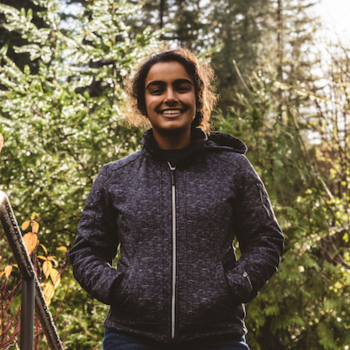
Interviewing for grad school is a two-way street
The questions you should be asking your potential advisors, and why, when choosing a research group
One of the most intimidating parts of the PhD application process is choosing a research group to join. It’s a daunting commitment–this group will be your home of sorts for the next five or more years. It’s important to think about this choice as finding a good match, rather than picking the name you think will look best on your papers.
When I was making this decision last year, I created a list of questions to ask potential advisors. While the primary goal was obviously to hear how the advisor answered each question, an equally important part of the process was asking myself what my ideal answer was for each one. This was pretty tough–it’s hard to know yourself! At the core, I was trying to answer the most critical question: what do I want to get out of graduate school? Particularly coming from a stable industry career that did not require me to get a PhD to advance, I wanted to ensure that I was setting myself up to get the most out of my experience. Forcing myself to think about the mentorship style I value in an advisor, the type of working environment I function best in, how social I wanted to be with my labmates, and so on, led me to a choice that I could feel confident in.
Here are the questions I found most helpful to ask potential advisors:
What are the signs that tell you a student is ready to graduate?
I found this led to more insight than asking how long their students take to graduate. Some answers included timelines or hard requirements like a minimum number of publications; others simply said it was a unique discussion for every student. My favorite answer came from one professor who said he always knew it was time to start thesis planning when he saw a transition in his meetings with a student, where the student began to become more of an expert in their research topic than the professor. That’s an advisor who’s paying close attention to the growth of each of his students as a researcher.
What skills/experiences do students from your group graduate with?
This is a good way to see how your goals for graduate school align with your advisor’s. I usually followed up by asking how they help their students develop those skills. Are they debugging code side-by-side with their students? What’s the advisor’s stance on industry internships? Do students get sent to present at conferences? When, and how many times, does the advisor look at a paper draft before submission? I’m likely going to return to industry after grad school, so these last two questions were especially important to me. I want to absorb as much of the experience of academia–and as much of my advisor’s expertise–as possible in the time I have.
How often do you meet with your students?
I work best with accountability, so finding a hands-on advisor was key for me. Some students are happy with monthly meetings and close mentorship from a more senior grad student or postdoc; some, like me, prefer weekly meetings and frequent feedback. This is also a great question to ask the advisor’s current students if you get a chance–to make sure that “we meet whenever we need to” translates to something closer to “I make myself very available” than to “I sometimes disappear for months on end.”
What type of student thrives in this group?
This one I mostly aimed at current students, especially ones who had been around for a couple of years. Current students have no incentive to lie to you and are hugely helpful in making this decision. I also, bluntly, asked them the natural second half of the question: who hadn’t been happy, and why? Mismatches happen. Sometimes, there’s a bad personality fit between student and advisor. Sometimes it’s not the lab culture the student wanted. Sometimes it’s a change in research interests. And sometimes, honestly, it’s just not a healthy environment for that student. Whatever the reason, the answers will give you an invaluable perspective on the group from your soon-to-be peers.
***
Ultimately, there is no such thing as an objectively perfect advisor. Each one has their own methods and their own quirks, and it’s your job to figure out what characteristics you consider a pro or a con. There will always be a bit of a leap of faith involved, but I used these questions to find a group with strong mentorship, supportive labmates, and an advisor who I knew would help me become the type of researcher I want to be. Knowing the answers gave me the confidence I needed to take the leap, and I couldn’t be happier with my choice.
Share this post:
